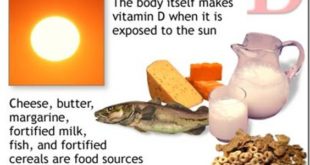
Vitamin D: Benefits and Sources
Vitamin D is a vital nutrient that plays a crucial role in various bodily functions, including bone health, immune system support, and overall well-being. It is often referred to as the “sunshine vitamin” because the body can produce it when exposed to sunlight. Additionally, certain foods and supplements can provide vitamin D. Let’s explore the benefits and sources of this essential nutrient.
Benefits of Vitamin D:
Bone Health:
Vitamin D is well-known for its role in maintaining strong and healthy bones. It helps the body absorb calcium and phosphorus, two minerals essential for bone formation and maintenance. Adequate vitamin D intake is crucial for preventing bone-related conditions such as osteoporosis and fractures.
Immune System Support:
Vitamin D plays a key role in supporting the immune system’s function. It helps regulate immune responses and contributes to the body’s defense against infections and diseases.
Mood and Mental Health:
Some research suggests that vitamin D may play a role in mood regulation and mental health. Adequate levels of vitamin D have been associated with a reduced risk of depression and improved mood.
Cardiovascular Health:
Vitamin D may contribute to cardiovascular health by helping regulate blood pressure, reducing inflammation, and supporting overall heart function.
Cancer Prevention:
Some studies suggest that maintaining sufficient vitamin D levels may be associated with a lower risk of certain types of cancer, including breast, colon, and prostate cancer.
Sources of Vitamin D:
Sunlight:
The most natural source of vitamin D is sunlight. When your skin is exposed to sunlight, specifically UVB rays, your body produces vitamin D. Spending around 10-15 minutes in the sun a few times a week can help maintain adequate levels. However, factors like skin tone, location, and sunscreen use can affect the amount of vitamin D produced.
Fatty Fish:
Fatty fish such as salmon, mackerel, and trout are excellent sources of vitamin D. They provide a substantial amount of this nutrient along with heart-healthy omega-3 fatty acids.
Cod Liver Oil:
Cod liver oil is a rich source of both vitamin D and vitamin A. It is available as a dietary supplement and can provide a significant amount of these essential nutrients.
Fortified Foods:
Many foods are fortified with vitamin D to help people meet their nutritional needs. These may include fortified dairy products (milk, yogurt, cheese), plant-based milk alternatives, breakfast cereals, and orange juice.
Egg Yolks:
Egg yolks contain a small amount of vitamin D. However, the level can vary based on factors such as the hen’s diet and exposure to sunlight.
Supplements:
In cases where sunlight exposure and dietary sources are insufficient, vitamin D supplements are an option. It’s important to consult a healthcare professional before taking supplements to determine the appropriate dosage.
Conclusion:
Vitamin D is a critical nutrient with a wide range of benefits, from promoting bone health to supporting the immune system and overall wellness. While sunlight is a natural source, incorporating vitamin D-rich foods and supplements into your diet can help ensure you maintain adequate levels for optimal health. Always consult a healthcare provider before making significant changes to your diet or supplementation routine.
 Daryeel Magazine
Daryeel Magazine



